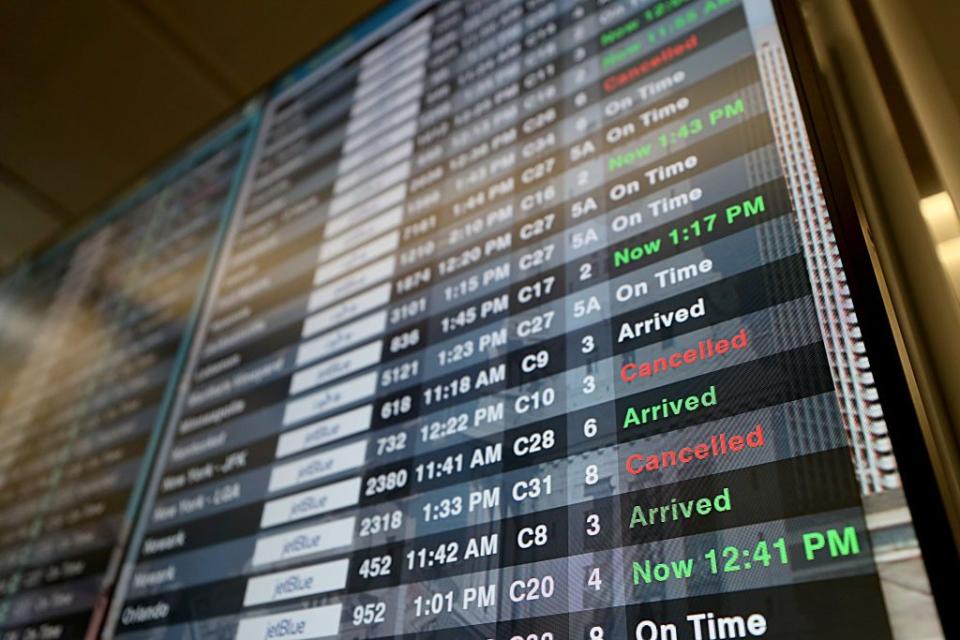What Travel Insurance Will and Won't Cover When It Comes to the Coronavirus

With the novel coronavirus continuing to spread at a rapid pace, it's making long-term planning of any sort tricky, and travel particularly so. Those hoping to book flights, hotels, and more are forced to wonder when—and how hard—the virus will hit a given city or country.
Such uncertainty is leading travelers to research options for protecting investments made in upcoming trips. And while some travel-focused industries are offering piecemeal solutions—airlines promising more flexibility for tickets made in the near future, hotels waiving some cancellation fees—travel insurance policies remain the most comprehensive option.
And customers are taking advantage. Jack Ezon, founder of the global travel agency Embark Beyond, tells Town & Country that he's seen quite a jump in travel insurance sales since the Covid-19 outbreak began—an 88% increase, to be exact.
So, is travel insurance the way to go, at least while the situation surrounding the outbreak remains unpredictable? Here, all the details what travel insurance can (and can't) do for those booking trips during the coronavirus outbreak.
First, here's how travel insurance generally works.
Kasara Barto, a spokesperson for the travel insurance comparison site Squaremouth, says that travel insurance policies are designed to cover "unforeseen losses incurred while traveling." That includes a wide range of things, from lost luggage to the cost of meals and accommodation during an unexpected delay.
Trip cancellation coverage is also typically included, with most policies offering to reimburse 100% of a customer's prepaid and non-refundable expenses—if the reason for cancellation is on a policy's approved list. "The most common covered reasons are an illness, injury, or death of the traveler, a traveling companion, or a family member," Barto says, adding that inclement weather, terrorism, and natural disasters are also frequently covered.

Most policies will not cover any cancellation related to Covid-19.
"In order for an insured traveler to be covered to cancel their trip, the event that is impacting their trip must be explicitly listed within their insurance policy certificate," Barto says. "Viral outbreaks, pandemics, and epidemics are typically not listed within a standard policy. Likewise, canceling a trip because they are too scared or concerned to travel won’t be covered."
For those who purchased travel insurance before the coronavirus became a foreseen event—a date typically defined by insurance providers as between January 21 and 27—some policies may cover trip cancellation if the CDC issued an warning against non-essential travel to a destination on a traveler's itinerary, or if the traveler is physically quarantined due to the virus; some may also cover medical expenses if a traveler contracted the virus while traveling. But, this doesn't help anyone looking to buy a policy now.
"Cancel for any reason" policies are the exception.
For those hoping to cover a trip that may be affected by Covid-19, there is an option: "cancel for any reason" policies. (It really means any reason. "It could be I woke up tired and I'm not in the mood to go. My sister's having a dinner party that I don't want to miss that I didn't know about," Ezon says.)
It's "an optional upgrade that can be added to some policies, as long as the traveler purchases the policy within 14-21 days of making their initial trip deposit," Barto explains.
Generally, "cancel for any reason" policies cover around 75% of the full cost of a canceled trip, significantly less than the full refund offered under other policies—something of a tradeoff for the no-strings-attached coverage.
These policies also more expensive. The "cancel for any reason" upgrade "typically increases a policy’s premium by about 40%," Barto says. "So far this year, the average cost for a policy with 'cancel for any reason' coverage is $489."
Normally, "cancel for any reason" policies aren't legal in New York state—but that's not the case at the moment.
In the wake of the coronavirus's spread, New York state has lifted its ban on "cancel for any reason" travel insurance policies, Governor Andrew Cuomo recently announced.
Cuomo revealed the change at a March 6 briefing, noting that in addition to limiting COVID-19's spread in the state, "we want New Yorkers to go about their daily lives including planning vacations and other travel, and this action will allow them to do that at a time when there is still uncertainty about the future geographic impact of coronavirus."
You Might Also Like

